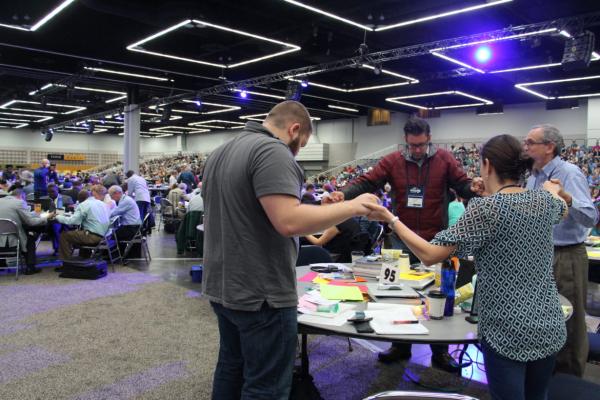May 23, 2016
The debate — over how to debate the rules — became so convoluted that at one point Missouri delegate Margie Briggs called for prayer and said:
“I believe we are confusing God at this point.”
Read the Full Article

Already a subscriber? Login
